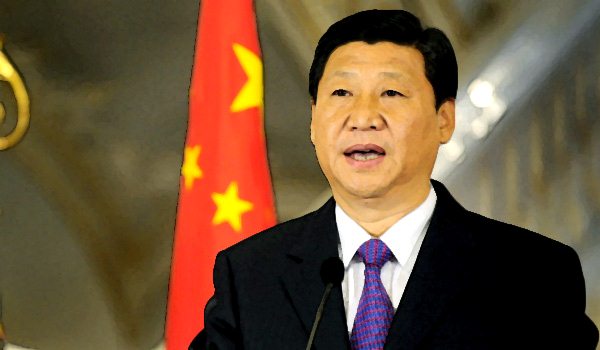 Xi Jinping
Xi Jinping
Interesting piece in Foreign Affairs by Wang Jisi, Dean of the School of International Studies at Peking University and a key adviser to President Hu Jintao: "China's Search for a Grand Strategy."
Summary: With China's clout growing, the international community needs to better understand China's strategic thinking. But China's core interests are to promote its sovereignty, security, and development simultaneously -- a difficult basis for devising a foreign policy.
John Milligan-Whyte posted our grand strategy "term sheet" details in the comment section of the piece on the FA site.
We had tried to meet with Wang Jisi in December, but didnt' break through. Clearly though, he's on the same wavelength in terms of searching for a grand strategic approach for China that puts it in a better relationship with the US.
As for the summary statement that promoting sovereignty, security and development simultaneously is a difficult basis for devising a foreign policy, I consider that an odd excuse. Countries combine those desires all the time in crafting a foreign policy. What's so unique about China's attempt? Read into the text and you'll see: the fear that internal unrest will trigger external meddling that attempts regime change. Sounds like Libya, yes?
Clearly, Jisi wrote his piece long before the Facebook Revs, but China's behavior since confirms this deep fear. China's fears in this regard are its Achilles heel. Its history says that whenever China fears for its internal stability, it becomes very conservative and timid in its foreign policy. These fears also why a new relationship with the US must be built, one that allows China the confidence to move ahead with political reforms without fear of external meddling.
The system simply can't withstand a China implosion now, but it definitely desires - across the board - serious movement on political reform within China. No one wants the push to come to shove, but the truth is, it has to happen sometime. But as long as the US-China relationship contains such profound strategic distrust, it's far less likely too. Sadly, strategic distrust of China on the US side contributes to our own inability to make necessary internal changes.
In the long run, we all know the US and China will run this world more than any other two states. The great third will be India. Nobody else will compare.
The realist realizes this and moves forward to shape the relationship toward what it needs to be. The paranoid types on both sides stick with the status quo, piling up strategic weaponry in a hair-trigger deterrence mode. Our grand strategy term sheet seeks to break that logjam and force a new conversation, one less constrained by "separate tracks" US logic that condemns us to marginal progress.
Here's a harsh truth: the delta between our growing network-economic connectivity and our lagging pol-mil connectivity will be erased, one way or the other, in the future. We can see it evaporate in conflicts or we can see it retroactively boosted in response to them. Or we can act preventively, but not with the combined containment/outreach package we currently pursue. That is designed, almost cynically, for failure. It suggests that we will simultaneously seek China's cooperation and its internal regime change. So long as we imply the latter - however subtly, the trust will never develop and then we won't have the relationship we truly need when those domestic reforms are finally triggered, one way or the other, by the Chinese people themselves - on their schedule.
If President Obama truly believes in the "organic" revolution, he needs to do more to lay the groundwork for the strategic trust that allows America to be part of that inevitably and hopefully incremental process, because our current stance hinders those developments - to our and the world's disadvantage.
Hu is done, as his farewell DC tour in January indicated. This is now all about making something happen with Xi Jinping (pictured above), who is a careful enough fellow in his own right, but not the constrained thinker Hu was/is.